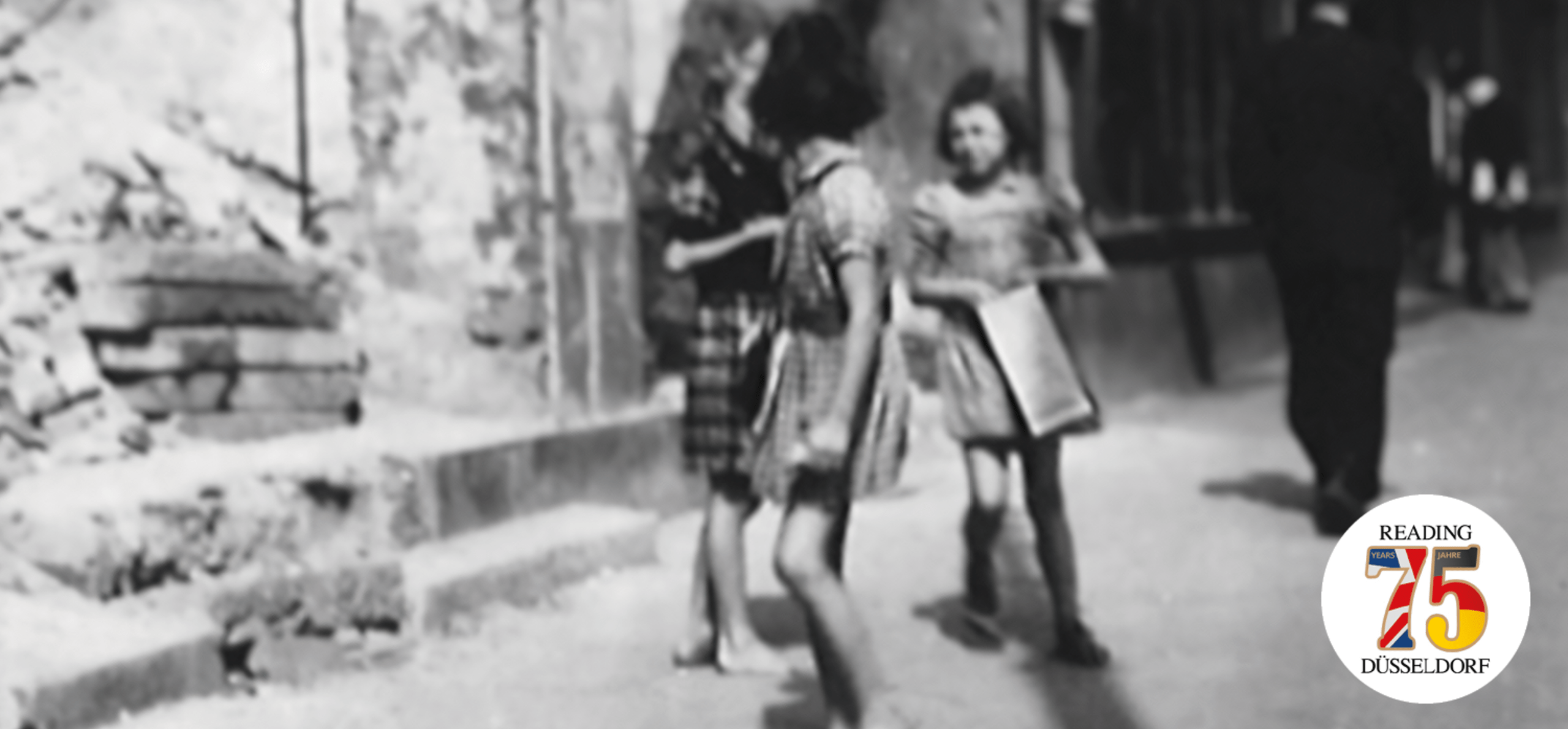Venue: Welcome Gallery Reading Museum
At the end of the Second World War, Europe was left in ruins. In the destroyed cities and towns of post-war Germany, starvation and disease were rife and living conditions abysmal. Düsseldorf, the headquarters of the British-administered zone in newly created North-Rhine Westphalia, was largely reduced to rubble. Children went to school in bunkers and people walked barefoot.
In Reading, people had suffered privations and many local lives had been lost during the war, but the town hadn't been a major target. The only fatal air raid, in February 1943, destroyed the People's Pantry, badly damaged the Town Hall, and killed 41 people. Despite other sporadic bombings, Reading remained largely intact.
Prompted by the harrowing details of suffering in Victor Gollancz' In Darkest Germany and other eye-witness accounts, the Mayor of Reading in 1947, Phoebe Cusden, felt compelled to visit Düsseldorf to see the conditions for herself. Having already made a successful appeal for food and clothing for the city's destitute population, she went on to invite six children to stay with Reading families. This was followed by a return visit to Düsseldorf, and a regular annual exchange soon began, which developed into the longest continuous history of any friendship between Anglo-German cities.
Head Over Heels: Friendship from the ruins, delivered in partnership with the Reading-Düsseldorf Association, celebrates the 75th anniversary of the friendship between Düsseldorf and Reading. Alongside photos and artefacts, the display will include a selection of rare archives on loan from the Berkshire Record Office and an exploration of the Reading sculpture Cartwheeling Boys, a symbol of the ongoing cultural exchange between our twinned towns.
Kindly sponsored by the Friends of Reading Museum.
Header image credit: papers of Phoebe Cusden (Berkshire Record Office, BRO D/EX1485/15/17).






